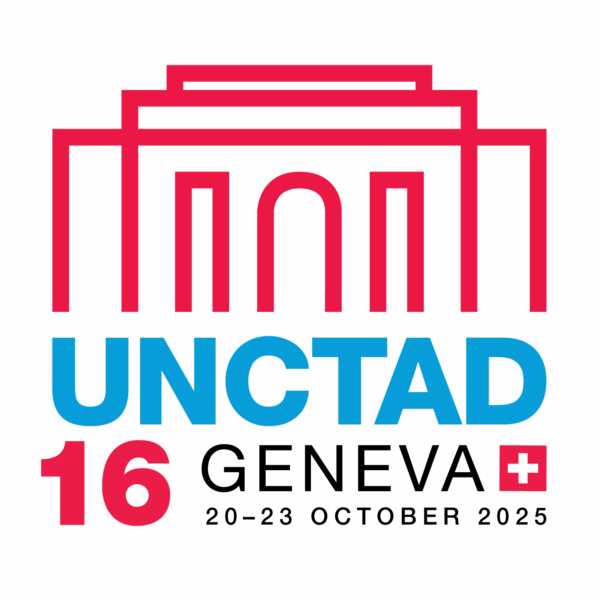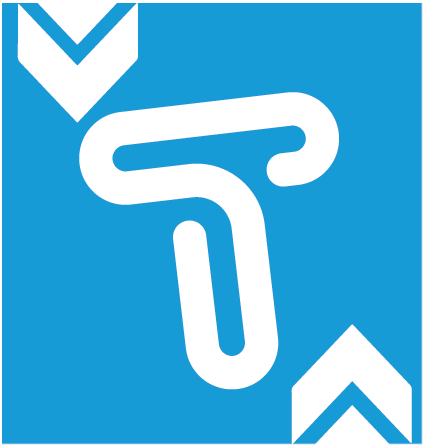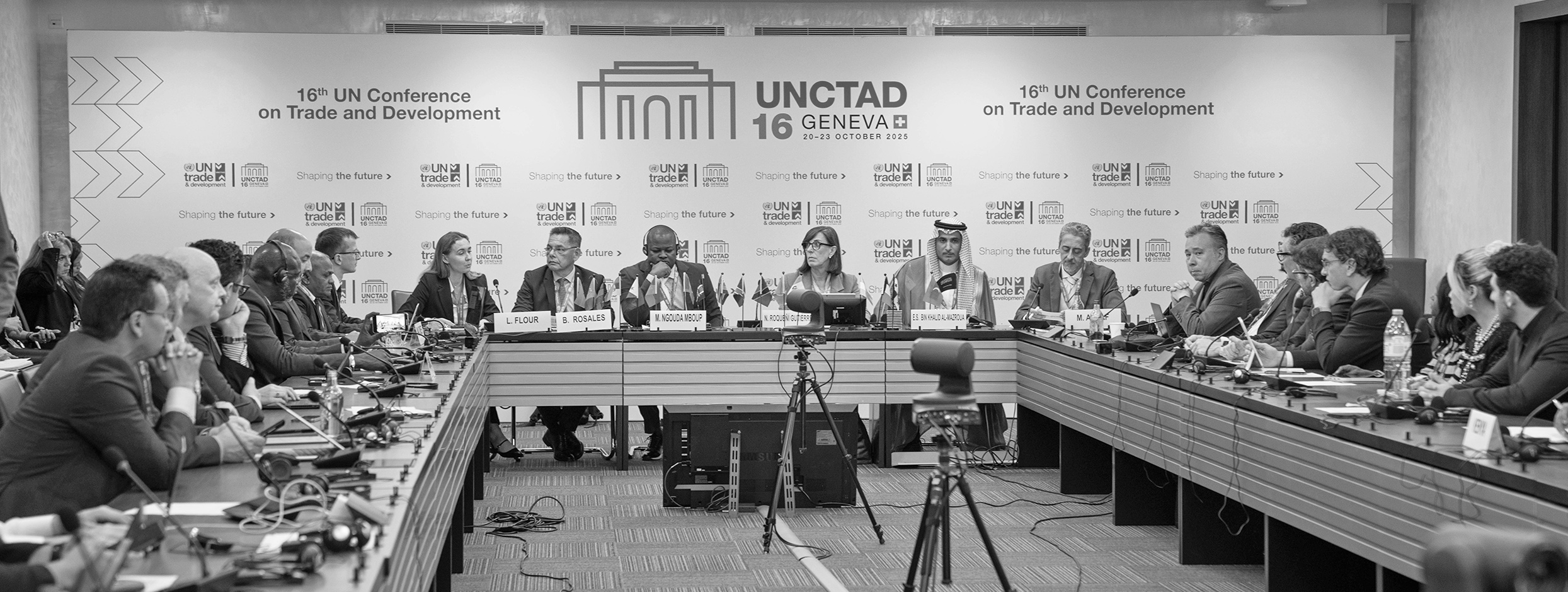The highest decision-making body of UNCTAD is the quadrennial conference, at which member States make assessments of current trade and development issues, discuss policy options and formulate global policy responses. The conference also sets the organisation’s mandate and work priorities.

Shaping the future
16th conference on trade and development
The 16th session of the United Nations Conference on Trade and Development (UNCTAD16) will take place from 20 to 23 October 2025 at the Palais des Nations in Geneva, with the theme “Shaping the future: Driving economic transformation for equitable, inclusive and sustainable development”.
Hosted by Switzerland and UNCTAD, the conference will convene Heads of State and Government, Ministers of Trade and Economy, Nobel Laureates, leaders of international organizations, representatives of civil society and renowned experts to engage in high-level dialogue on global trends and policy perspectives on trade, investment, development and the digital economy.

TrainForTrade is proud to announce that it will be hosting a parallel event on Port Management on Future Ready Ports: Digital and energy transition strategies at the 2025 UNCTAD 16 Conference in Geneva on 22 October.

UNCTAD15 pre-event: Launch of TRAINFORTRADE course on building port resilience against pandemics
This high-level event will launch a new UNCTAD course, entitled Building port resilience against pandemics. Panellists will discuss the importance of keeping supply chains open and seaborne trade moving in times of crisis.
Ships carry around 80% of global trade, including food, energy, raw materials and vital medical supplies.
COVID-19 highlighted the critical role that maritime transport plays in response to pandemics and the need for governments to allow commercial ships continued access to ports worldwide and to facilitate the rapid changeover of ships’ crews.
UNCTAD’s TrainForTrade programme has designed a self-paced, moderated online course to help port community managers strengthen the knowledge and skills needed to protect the people working in port activities while ensuring the continuity of operations.
The course, set to be delivered from 28 June to 30 July 2021, will also lead to the development of a set of recommendations to mitigate the impacts of the current and future pandemics in port communities around the world. The policy advice will feed into the deliberations of UNCTAD15, the organization’s ministerial conference scheduled for the week of 3 October.

E-Learning: Leapfrogging Skills Development, UNCTAD 14
Thursday, 21 July, 08:00-09:00, KICC TSAVO 3 room, Nairobi, Kenya
Building productive capacity to transform economies
Building a solid knowledge base is a critical element in ensuring that developing countries have the capacity to maximize the benefits of globalization and trade for development. It is also an increasingly complex task in light of the need for integrated treatment of trade, finance, investment, and technology. Developing countries need to build their own know-how, human capital, and skills capacity to improve the design and application of policies governing their participation in the global economy. But rapid technological advancements are also providing new opportunities for the scaling up of efforts on skills development. This side event will examine how e-learning tools, ICTs, and innovative knowledge strategies can be better exploited to assist developing countries in leapfrogging in their skills development for trade capacity building and, thereby, support sustainable and inclusive development.

ICT for knowledge sharing, UNCTAD XIII
ICT for knoKnowledge plays a key role in today’s globalized world. It enables firms and organizations to increase their competitiveness through a better understanding of the most important issues of economic development. As Information and Communication Technologies (ICTs) support, accelerate and improve the sharing of information among firms and individuals, they change the way people learn and network. With the expansion of 3G/4G coverage, cell phones, smartphones and tablets have made access to information much easier. The development of the Web 3.0, of cloud learning and M-learning provide efficient solutions for the storage, dissemination, and acquisition of information It becomes now possible to access the right knowledge at the right time. And along with promoting interactive and collaborative learning, the evolution of ICTs has also begun to facilitate the adaptation of training programmes to specific country needs and local context. As active users of ICTs goods and services, Developing Countries, including Least Developed Countries (LDCs), are in a good position to benefit from innovative technologies to share knowledge.



